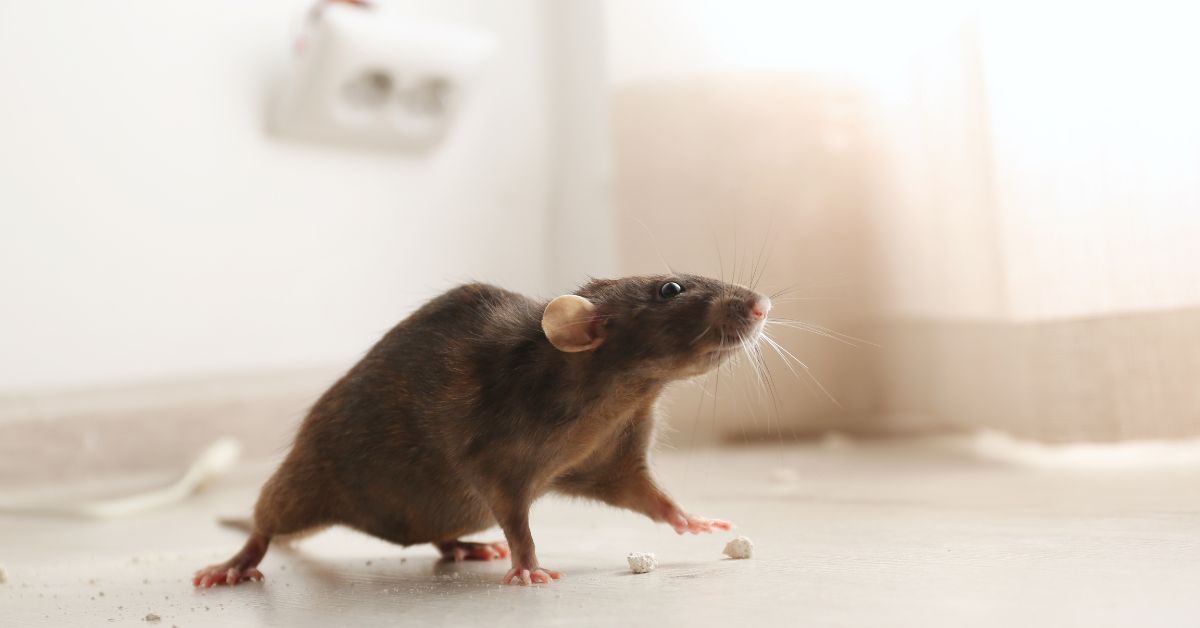How to Stop Ants from Invading Your Kitchen in 7 Easy Steps
If you've ever had ants in your kitchen, you know how frustrating and annoying they can be. They seem to appear out of nowhere and multiply by the minute. They crawl on your countertops, your sink, your stove, and even your food. They can ruin your appetite and your mood.
But don't despair, there are ways to prevent ants from taking over your kitchen. In this blog post, we'll share with you 7 easy steps that you can follow to keep your kitchen ant-free. These steps are based on scientific research and proven methods that work for many homeowners. Plus, they are simple, affordable, and eco-friendly.
So, let's get started and learn how to stop ants from invading your kitchen in 7 easy steps.
Step 1: Identify the Type of Ants
The first step to prevent ants from taking over your kitchen is to identify the type of ants that you have. Different types of ants have different behaviors, preferences, and weaknesses. Knowing the type of ants that you have will help you choose the best strategy to get rid of them.
There are many types of ants that can infest your kitchen, but some of the most common ones are:
- Carpenter ants: These are large, black ants that can damage wood structures by tunneling through them. They usually nest in moist or decayed wood, such as behind cabinets or under sinks. They are attracted to sweet and greasy foods.
- Odorous house ants: These are small, brown or black ants that emit a foul odor when crushed. They usually nest in wall voids, under carpets, or near water sources. They are attracted to sugary and protein-rich foods.
- Pavement ants: These are small, dark brown or black ants that nest under pavement, stones, or bricks. They often enter homes through cracks or gaps in the foundation or walls. They are attracted to a variety of foods, including bread, cheese, meat, and nuts.
- Pharaoh ants: These are tiny, yellow, or light brown ants that can carry diseases and contaminate food. They usually nest in warm and humid areas, such as behind appliances or under floorboards. They are attracted to sweet and fatty foods.
To identify the type of ants that you have, you can use a magnifying glass to examine their size, color, shape, and antennae. You can also take a picture of them and compare it with online images or guides. Or you can contact a professional pest control company like Eyring Pest Control for expert identification and advice.
Step 2: Eliminate the Food Sources
The second step to prevent ants from taking over your kitchen is to eliminate the food sources that attract them. Ants have a keen sense of smell and can detect even the smallest crumbs or spills. Therefore, you need to keep your kitchen clean and tidy at all times.
Here are some tips to eliminate the food sources that attract ants:
- Store all food items in airtight containers or ziplock bags.
- Wipe down all surfaces after cooking or eating.
- Sweep or vacuum the floor regularly.
- Rinse or wash dishes immediately after use.
- Dispose of garbage frequently and keep trash cans sealed.
- Remove any pet food or water bowls after feeding.
- Clean any appliances that may have food residue, such as microwaves, ovens, toasters, or coffee makers.
By eliminating the food sources that attract ants, you will make your kitchen less appealing and less accessible for them.
Step 3: Seal the Entry Points
The third step to prevent ants from taking over your kitchen is to seal the entry points that they use to get inside your home. Ants are very resourceful and can find many ways to enter your home through cracks, gaps, holes, or vents. Therefore, you need to inspect your home thoroughly and seal any potential entry points that you find.
Here are some tips to seal the entry points that ants use:
- Use caulk or silicone to seal any cracks or gaps in the walls, floors, windows, doors, or pipes.
- Use weather stripping or door sweeps to seal any gaps under the doors.
- Use mesh screens or covers to seal any vents or openings in the roof, attic, basement, or crawl space.
- Use steel wool or copper mesh to fill any holes or crevices in the woodwork or foundation.
- Use repellent sprays or powders to deter any ants from crossing certain areas.
By sealing the entry points that ants use, you will make your home more secure and less vulnerable for them.
Step 4: Use Natural Repellents
The fourth step to prevent ants from taking over your kitchen is to use natural repellents that can keep them away. Natural repellents are substances that have a strong smell or taste that ants dislike or avoid. They are safe for humans and pets and do not harm the environment.
Here are some examples of natural repellents that you can use:
- Vinegar: Vinegar is a natural acid that can disrupt the ants' sense of smell and taste. You can spray vinegar on the surfaces where you see ants or wipe them with a cloth soaked in vinegar. You can also mix vinegar with water and use it as a cleaning solution for your kitchen.
- Lemon: Lemon is a natural citrus that can repel ants with its sour and fresh scent. You can squeeze lemon juice on the areas where you see ants or rub lemon peels on them. You can also place lemon peels or slices near the entry points that ants use.
- Cinnamon: Cinnamon is a natural spice that can repel ants with its warm and spicy aroma. You can sprinkle cinnamon powder on the paths that ants follow or place cinnamon sticks near the entry points that ants use. You can also mix cinnamon oil with water and spray it on the surfaces where you see ants.
- Peppermint: Peppermint is a natural herb that can repel ants with its cool and minty scent. You can plant peppermint in pots or containers and place them around your kitchen. You can also mix peppermint oil with water and spray it on the surfaces where you see ants.
By using natural repellents, you will create a hostile environment for ants and discourage them from entering your kitchen.
Step 5: Use Bait Traps
The fifth step to prevent ants from taking over your kitchen is to use bait traps that can kill them. Bait traps are devices that contain a food source mixed with a toxic substance that ants ingest and bring back to their nest. They are effective for eliminating the entire colony of ants, not just the ones that you see.
Here are some tips for using bait traps:
- Choose a bait trap that matches the type of ants that you have. For example, if you have carpenter ants, choose a bait trap that contains a sweet and greasy food source. If you have pharaoh ants, choose a bait trap that contains a protein-rich food source.
- Place the bait traps near the entry points that ants use or along the trails that they follow. Do not place them near the natural repellents that you use, as they may interfere with the bait's attractiveness.
- Replace the bait traps regularly or as instructed by the manufacturer. Do not disturb or move them once they are set up.
- Keep the bait traps out of reach of children and pets, as they may be harmful if ingested.
By using bait traps, you will eliminate the source of the ant problem and prevent them from reproducing.
Step 6: Prevent Future Infestations
After you've gotten rid of the ants, you need to prevent them from coming back. Here are some tips to follow:
- Keep your kitchen clean and tidy. Make sure to clean your kitchen regularly and thoroughly.
- Seal any cracks or holes. Follow the tips in step 3 and make sure to seal any potential entry points for ants.
- Use natural repellents. Follow the tips in step 4 and make sure to use natural repellents around your kitchen.
- Monitor your kitchen for signs of ants. Check your kitchen frequently for any signs of ants, such as trails, nests, or damage. If you spot any, act quickly and use the appropriate method to get rid of them.
Step 7: Contact Eyring Pest Control
For professional and reliable pest control services in West Jordan, UT, and the surrounding areas, we’ve got you covered! If you need help with getting rid of ants or any other pests in your kitchen or home, don't hesitate to contact Eyring Pest Control. We are a family-owned and operated business that has been serving customers in West Jordan, UT, and the surrounding areas for years. We offer a variety of pest control services, including ant control, rodent control, termite control, bed bug control, spider control, cockroach control, and more. We use eco-friendly and safe products and methods that are effective against pests but harmless to humans and pets.
Don't let ants ruin your kitchen or your peace of mind. Contact Eyring Pest Control today at
385-290-9782 and let us take care of your pest problems for good.
Our Recent Articles




